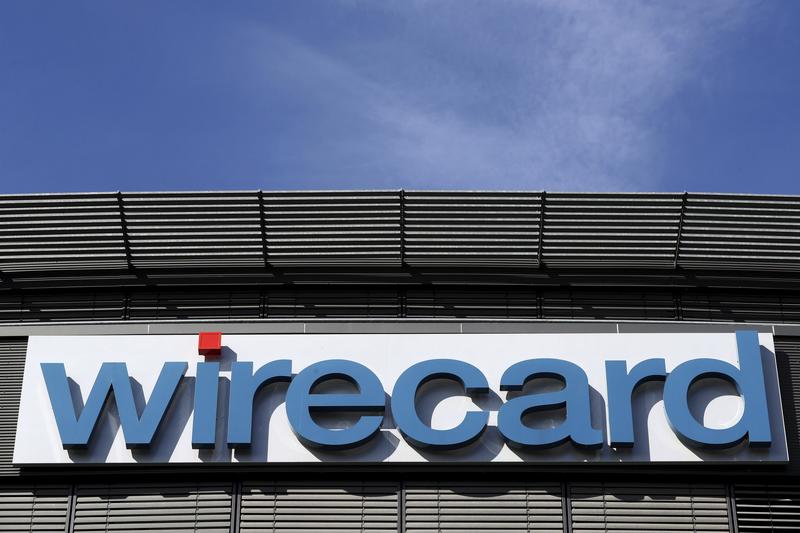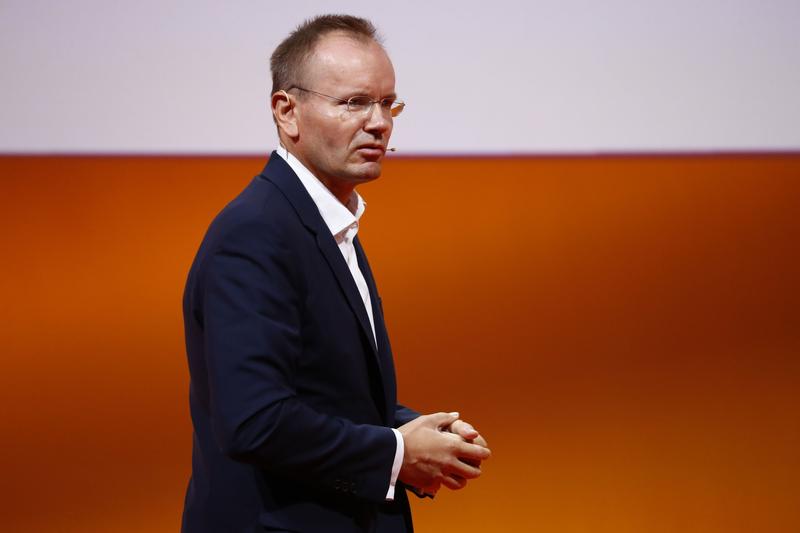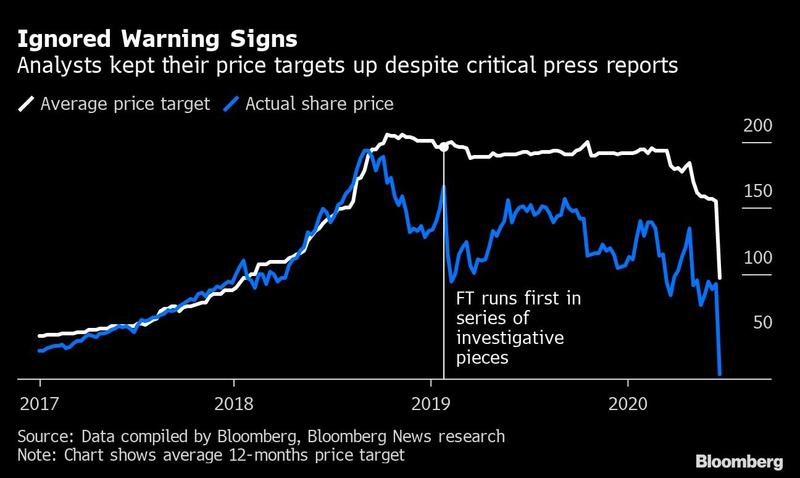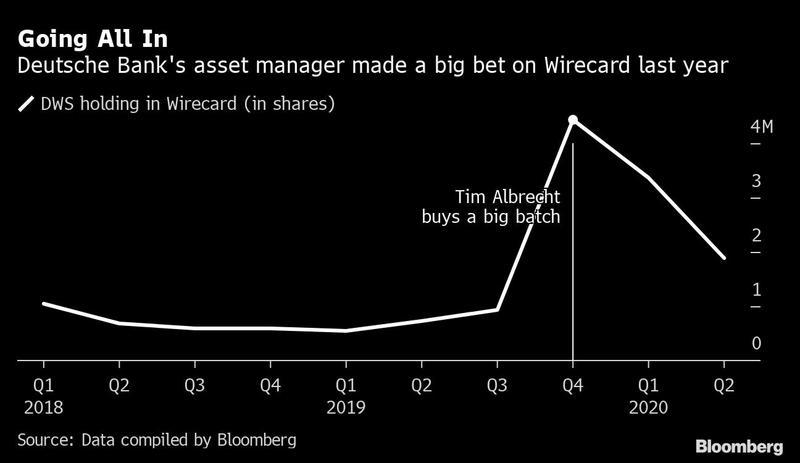 In this April 25, 2019 file photo the logo of financial services company Wirecard is pictured at the headquarters in Munich, Germany. (MATTHIAS SCHRADER / AP)
In this April 25, 2019 file photo the logo of financial services company Wirecard is pictured at the headquarters in Munich, Germany. (MATTHIAS SCHRADER / AP)
The company once hyped as the future of German finance has become a symbol of national embarrassment.
After promising to shake up the world of payments, Wirecard AG saw its stock collapse and its chief executive officer resign after 1.9 billion euros (US$2.1 billion), or about a quarter of its balance sheet, went missing. It subsequently withdrew its fiscal 2019 and first-quarter 2020 financial results after saying those funds on its balance sheet didn’t exist. That was a bombshell for Germany’s establishment after it defended Wirecard from critical investors who have long warned of accounting irregularities.
We Germans aren’t as prone to euphoria as in the US, but back when Wirecard joined the DAX, there was this great feeling that we can also produce successful tech giants
Hans-Peter Burghof, a finance professor at the University of Hohenheim
“We Germans aren’t as prone to euphoria as in the US, but back when Wirecard joined the DAX, there was this great feeling that we can also produce successful tech giants,” said Hans-Peter Burghof, a finance professor at the University of Hohenheim in Stuttgart. “What we’re seeing now is just awful.”
“It’s embarrassing for Germany,” he said. “The banks, the auditors and the regulators weren’t asking the right questions.”
For all its engineering prowess, Germany has lagged in producing technology giants such as Facebook Inc., with the exception of software company SAP SE. After a run of acquisitions, Wirecard seemed set to change that narrative: based in a sleepy suburb of Munich, a city better known as the home of BMW and Siemens, the upstart company bumped then 148-year-old Commerzbank AG out of the DAX, Germany’s benchmark index of publicly-traded companies, in 2018.
Wirecard’s origins focused on servicing payments for online gambling and porn. More recent customers include Germany’s most successful soccer club Bayern Munich, French mobile phone carrier Orange SA and Swedish furniture giant Ikea. Investors, analysts and regulators were willing to overlook Wirecard’s opaqueness as long as it kept growing, even as questions about its accounts were highlighted last year by a series of media reports, led originally by the Financial Times.
The stock slid and investors placed so many bets that it would tumble further that German financial markets regulator BaFin stepped in to temporarily ban such short positions against Wirecard, a step it had never taken for an individual company.
 In this Sept 4, 2019 file photo, Markus Braun, chief executive officer of Wirecard AG, delivers a keynote speech at the Handelsblatt Banking Summit in Frankfurt, Germany. (PHOTO / BLOOMBERG)
In this Sept 4, 2019 file photo, Markus Braun, chief executive officer of Wirecard AG, delivers a keynote speech at the Handelsblatt Banking Summit in Frankfurt, Germany. (PHOTO / BLOOMBERG)
“Our focus was on protecting trust in the market as a whole, not a single company,” a BaFin spokeswoman said in response to questions from Bloomberg. BaFin directly oversees only banks and insurers.
Others don’t agree. Investors’ losses would have been “a fraction of what they are” if BaFin had taken a different approach, said Carson Block, the famed short seller. He says his firm Muddy Waters made a bet against Wirecard in 2016, but didn’t renew it.
Investors Balk
The stock has fallen 86 percent since it joined the DAX. Creditors’ faith that they’ll get their money back from Wirecard has also evaporated: by Friday its bonds were offering yields similar to those of bankrupt rental-car giant Hertz Global Holdings Inc.
The collapse in the shares risks further undermining the readiness of Germans to invest in stocks rather than savings accounts, which currently offer negligible interest.
The German regulator also investigated possible market manipulation by short sellers and journalists, and whether Wirecard failed to meet its disclosure obligations. It asked Munich prosecutors to take both matters further.
A spokeswoman for Wirecard didn’t respond to an email seeking comment for this story. A Finance Ministry spokesman declined to comment on the case, while telling reporters the government seeks to safeguard “a healthy and competitive financial industry” in Germany.
When it came to Wirecard, the authorities “limited themselves to the tiniest accusation,” said Armin Stracke, a former trader and Wirecard investor who filed a complaint with BaFin this year alleging that the company had misled investors.

BaFin is still probing whether Wirecard’s suspected accounting issues constituted market manipulation. Unlike in other investigations, the regulator is reliant on the assessment of other authorities in this matter, the spokeswoman said.
“BaFin started its investigations early on, but sadly that couldn’t prevent the striking losses for investors,” said Florian Toncar, a German lawmaker from the opposition Free Democrats. “It would be very good to see BaFin use the tools at its disposal to quickly provide investors with clarity.”
ALSO READ: Germany's SAP committed to China market
Some German lawmakers want to expand BaFin’s powers to avoid future financial blow-ups. For Burghof, the finance professor, it isn’t so much a question of more power as exercising greater discretion within the regulator’s remit.
Lenders’ Help
Wirecard’s woes mark another low for Germany Inc. after the emissions cheating scandal that engulfed its carmakers and billions of dollars that Deutsche Bank AG paid in fines and legal settlements for misconduct following an aggressive expansion as a global investment bank.

Wirecard’s ascent probably wouldn’t have been possible without its lenders. Deutsche Bank, Germany’s biggest bank, even extended credit to former CEO Markus Braun that was collateralized with Wirecard shares, a transaction known as margin loan. A Deutsche Bank spokesman declined to comment on individual clients.
“A lot of sides are responsible,” Tim Albrecht, a fund manager at Deutsche Bank’s DWS asset management unit, said in an interview with Frankfurter Allgemeine Zeitung. “That starts with the institutional failings at Wirecard and goes all the way to the banks who sent positive signals with their credulous analyst reports.”
READ MORE: Global stocks retreat as investors fret over coronavirus relapse
Now, Germany’s banks and regulators are putting Wirecard under the microscope. While BaFin continues to investigate, at least 15 commercial lenders, including Commerzbank and ABN Amro Bank NV of the Netherlands, are negotiating about the next steps, Bloomberg reported on Friday.
Wirecard, for its part, said it’s in “constructive talks” with lending banks.


